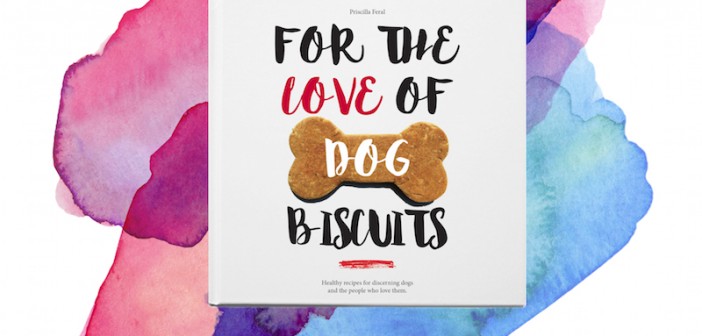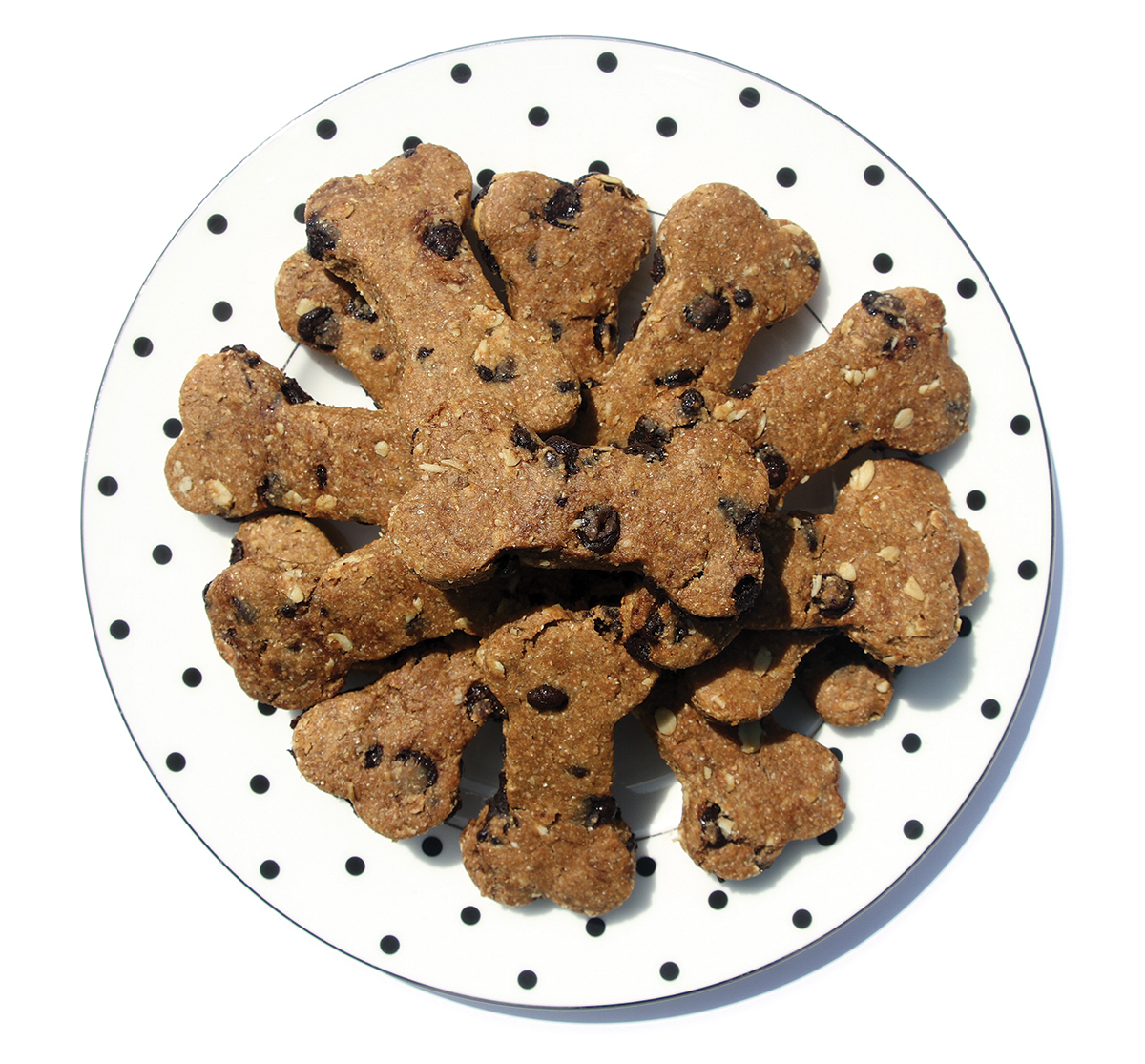As a food activist, I’ve authored two vegan cookbooks for Friends of Animals—Dining with Friends: The Art of North American Vegan Cuisine, and The Best of Vegan Cooking. Friends began asking me if I had a third book in me, and after noodling with the idea for a bit, decided no one had published a beautifully designed, intriguing dog biscuit cookbook.
So that’s Friends of Animals’ new book: For the Love of Dog Biscuits — a dog biscuit recipe cookbook that promises to thrill your dogs (testing the recipes resulted in a number of devoted canine fans) and enchant one’s dog-loving friends. We expect it to be a hit, as the dog treat industry leaves something to be desired.
Dogs were the first domesticated animals, and after they became human companions, their meals became scavenged scraps from the dinner table. By 1895, a biscuit for dogs was developed from a mixture of vegetables, grains, beetroot and remnants of meat, and these were fed to show dogs in the United States as their primary food. By 1907, an American inventor launched the idea of making dog biscuits in the shape of a bone – the only way his dog would eat them – and a year later, they became known as Milk-Bones.
Today, Milk Bone “crunchy” biscuits are scary –full of rendered products from animal tissues and bone (diseased or not), animal by-products, sugar, artificial color (includes Red 40), and chemical preservatives like BHA and BHT, which the World Health Organization has named as suspicious cancer-causing compounds. Also, the State of California has identified BHA as a possible carcinogen.
Most commercial dog biscuits lack moisture and contain chemical preservatives for shelf-life. Other, more costly, naturally preserved pet treats like Buddy Biscuits or Mr. Barkey’s Vegetarian Dog Biscuits are priced at $6 – $8 per pound and include natural preservatives labeled as mixed tocopherols – derived from palm, soybean, cottonseed, corn or other oils – excluding most vegetable oils. These mixed tocopherols achieve a shelf-life for ingredients of approximately one year. However, palm oil production is pushing orangutans to extinction.
In the 1980s, a Friends of Animals’ member devoted to her bull terriers, developed a homemade dog, cat and horse cookie line. These treats were packaged in adorable bags, and shoppers at our re-sale shop in Connecticut would look for them as training rewards or desserts on a regular basis. Some biscuits were in adorable heart-shapes, and all were full of natural ingredients, but without preservatives they had a limited shelf life since stores weren’t refrigerating them.
Would you believe dog treat sales in the U.S. were $2.6 billion a year in 2013? Unfortunately, today most American dogs are overweight, likely due to too little exercise and copious amounts of high calorie food. It doesn’t have to be that way.
My two dogs compel us to take more walks and move around. Of course they get fired up over food and frequent dog treats. But by making a variety of healthy, delectable biscuits you can spare dogs the troubling ingredients found in most commercial treats, and the icing on the biscuit…you can also save money.
When I started writing and testing the recipes, such as Sampson’s Peanut Butter Carob-Chip Biscuits, which I made with bulldog shape cookie cutters, not only were our dogs giving them high fives, Instagram followers pressed me to let them pre-order five to six copies of the cookbook for gift giving. Carob chips are similar in flavor to chocolate but unlike chocolate, which is poisonous for dogs, carob is non-toxic.
The recipes in For the Love of Dog Biscuits are brought to life with photographs of the biscuits taken by Jane Seymour and whimsical illustrations of ingredients, as well as some of the taste testers, by Caroline Thaw. It’s the cookbook every dog owner and dog lover should have. A promotional site for the cookbook is: fortheloveofdogbiscuits.com . All proceeds from the book support Friends of Animals’ spay-neuter program for dogs and cats, plus other life-saving campaigns.
Priscilla Feral
President
Friends of Animals
(Images courtesy Jane Seymour, Creative Director of Friends of Animals)






